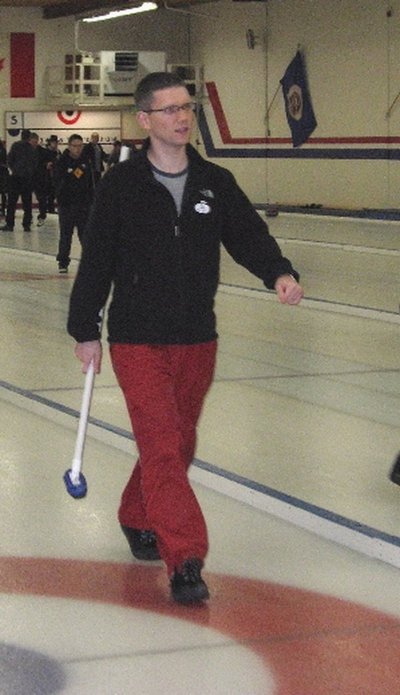February 18, 2010
UW resident curls, just for fun – not for Olympic glory
Interest in the sport of curling at the upcoming Olympic Games has spread all the way from Vancouver, B.C. to Comedy Central’s Colbert Nation.
He got involved in the sport through a colleague in Minnesota, and took to it right away. “I liked it immediately, mostly for the social camaraderie,” Linden said. “It’s a team sport, and something you can be successful at even though you learn it as an adult.”
Linden said he appreciates the competition as well as the team aspect it takes to be successful. “Even the very best teams can be beat by a mediocre team on a good day,” he said, optimistically.
He has curled with the best, too. Derrick McLean, a substitute player on Linden’s team, recently won the national junior championship in curling and will represent the U.S. in Switzerland next month.
The social aspect is apparent at the Granite Curling Club in north Seattle where Linden and other locals play. There’s a small bar with holiday lights on the second level—overlooking the ice—and teams take turns bringing in food for the players. On a recent Friday night, you could grab a baked potato or a Rice Krispie treat to go with your beer.
Tom Fitzgerald, media coordinator, said the public’s interest in curling has picked up in recent months due to the Olympic Games. He said he expects two- to three-hour waits for time on the ice at upcoming open house events.
Curling was added as an Olympic event at the 1998 games in Nagano, Japan. “Before curling was in the Olympics, the open house would be a couple instructors and their friends,” said Fitzgerald. “Now, you can’t even move.”
Interest is also high because the ice itself is scarce. The north Seattle organization is the only curling club west of North Dakota, according to Fitzgerald. “There’s a curling rink in Fairbanks and Anchorage, but in terms of Western states, none of them have their own curling ice. This is totally different.” All Western league championship games take place at the club, he said.
Linden said playing in a league at the club helps him unwind and forget about his busy work week. He also has the chance to meet interesting people. Over the years, he has curled with an agricultural banker who made his own maple syrup, a mink specialist and even some of the guys from the current U.S. championship team. “You meet a whole mix of people,” he said.
He first visited the Seattle club while interviewing for the pathology resident program in January 2006. “I immediately felt at home,” he said. “It probably influenced my decision to come here positively. It was similar to the culture and hospitality I experienced in Minnesota. Compared to Minnesota, though, the consumption of alcohol is a lot less.”



